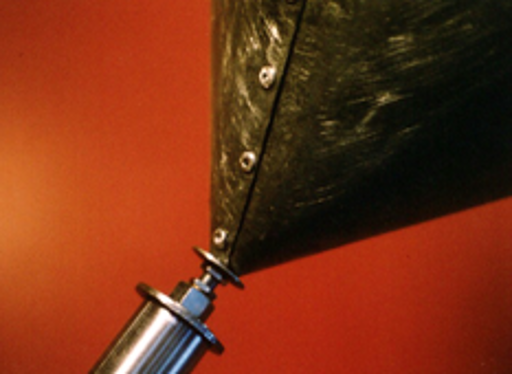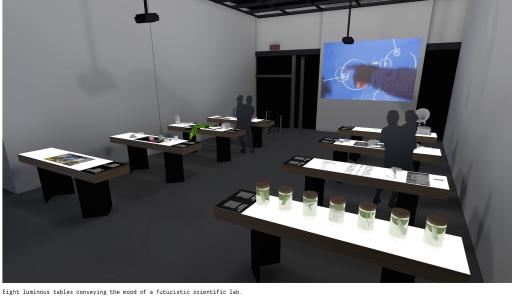
Martin Racine, PhD
- Professor , Design and Computation Arts
- Professeur titulaire , Design and Computation Arts
Are you the profile owner?
Sign in to editResearch areas: ecodesign, rapid prototyping, design history, industrial design, exhibition design, design for sustainability, product development, 3D design, semiotics, crowdsourcing, social media, internet studies, material culture, consumption, design epistemology, environmental ethics, sustainable development
Contact information
Biography
Dr. Martin Racine is professor in the Department of Design and Computation Arts since 1999. He holds a PhD in Design, specialized in Design Theory and History and a Master's degree in Communication Sciences, where he focused on the field of semiotics and cognitive sciences. He has published many articles on the history of design in Québec and he recently published a book on design pioneer Julien Hébert. Trained as an Industrial Designer in Montréal (Université de Montréal) and in Paris (École nationale supérieure de création industrielle), his experience covers furniture design, product and exhibition design. In his department, he is responsible for the area of 3d design and teaches both at the graduate and undergraduate levels.
Education
- PhD in Design, specialized in Design Theory and History
- Master's Degree in Communication Sciences
- Bachelor's Degree in Industrial Design
Areas of expertise
3D Design, Ecodesign, Exhibition Design, Design Epistemology, Design History, Semiotics.


Research activities
DNA_The Future Life of Objects (2014-2017)
Originating from a major 3 year Research-Creation team project funded by the FRQSC, this research project presents a reflection on the Future Life of Objects, based on the metaphor of a biological research lab focusing on the study of DNA.
What do a human, a flower, and a bacterium have in common? Each of these things —along with every other organism on Earth — contains the molecular instructions for life, called deoxyribonucleic acid or DNA. Encoded within this DNA are the directions for traits as diverse as the colour of a person’s eyes, the scent of a rose, and the way in which bacteria propagate to infect a lung cell.
Just as DNA is found in nearly every living cell, can we imagine a future where even artificial objects encrypt a genetic code ?
This research will be presented through an interactive exhibition at the FOFA Gallery in November 2016. The expo discloses a critical and somewhat subversive point of view on the world of objects, where the visitor is invited to manipulate distorted interactive objects, or play the role of a scientific investigator called on to discover the interior organs of an object, through hand held scanners and X-Rays.
Metacycle (metacycle.ca)
Metacycle aims to optimize the creative potential of artists and designers by reuniting them within a virtual community serving the common objective of prolonging the life span of consumer products. This international virtual community would foster links between consumers wanting to renew their material goods and the creative talents that can offer them innovative solutions that lessen the damaging impacts that traditional mass consumption causes to the environment.
The goal of this project is to develop an interactive framework through which consumers can benefit from unique and innovative updates to products whose usefulness is being put into question. The implementation of such a new virtual community describes a new paradigm for the creation of objects in which users can participate themselves in the formulation of their material world.
Relying heavily on the exploitation of Rapid Prototyping technologies, the pooling of a large number of creative minds allows the generation of a new category of unique products that favour increased attachment through personalization.
Meta-Morphose (meta-morphose.ca)
The METAMORPHOSE project aims to establish the foundations of a new approach to product design based on the potential of rapid prototyping (RP). The objective is to design new products while anticipating their eventual transformation, either by personalizing, or updating their function or style with RP in order to give them new life.
This evolution of shape, function, texture, and colour aims to extend products' lives by offering an alternative to the planned aesthetic and technical obsolescence that prevails today. It is hoped that we can alleviate some of the negative environmental impacts ensuing from such practices. This new 'organic' mode of design, based on RP technologies, offers unexplored potential to develop a new vocabulary of form and leading edge design.
Publications
Papers on Design for Sustainability
Racine, M. (2013), “Applying the Metacycle Principle as a Strategy for Sustainable Design Education”. Paper presented at the 5thConference of International Association of Societies of Design Research (IASDR) Tokyo, Japan, August 2013.
Racine, M. (2012), “A Creative Strategy for Sustainable Design Education”. Paper presented at the International Conference on New Horizons in Education, Prague, Czech Republic, June 2012.
Racine, M. and Lalande, P. (2010) "Metacycling, An International Collaborative Project promoting Sustainable Design”. Paper presented at the International Technology, Education andDevelopment Conference, Valencia, (Spain), March 2010.
Racine, M. and Lalande, P. (2010) "Metacyling and Rapid Prototyping". Paper presented at the Digital Futures Initiative,Ontario College of Art and Design (OCAD), Toronto, January 2010.
Cucuzzella, C., Colby, C., Lalande, P., Racine, M. (2010) "Rethinking Material Flows: Assessing a New Business Model for Material Repurposing”. Paper presented at the Society and Materials Conference, Nancy (France), April 2010.
Racine, M. and Lalande, P. (2008) "Extending Products’ Lifespans using Virtual Communities and Rapid Prototyping". Paper presented at the Design visions International Conference,Torino (Italy), July 2008.
Racine, M. and Lalande, P. (2008) "Metacycling. Crowdsourcing for Product Longevity". Paper presented at the "Cumulus International Conference", Kyoto (Japan), March 2008.
Racine, M. and Lalande, P. (2006) "The Metamorphosis of Products, a Sustainable Design Strategy that Favors Increased Attachment". Paper presented at the "Fifth InternationalConference on Design and Emotion", Gothenburg (Sweden) September 2006
Racine, M. and Lalande, P. (2005) "The potential of Rapid Prototyping for Sustainable Design". Paper presented at the Société des arts technologiques, Montréal, September 2005.
Racine, M. and Lalande, P. (2003) "Rapid Prototyping A New Approach Towards Ecodesign". Presented at the International Conference on Sustainable Innovation, Stockholm (Sweden),November 2003. Voted Best Research Project of the Conference.
Racine, M. (2002), "Integrating New Technologies in the Design Process, a Tool for Sustainability". Presented at the "Towards Sustainable Product Design" Conference, London (England),October 2002.
Racine, M. (2001), "L'intégration du prototypage rapide comme outil pour prolonger la vie utile des objets". Presented at the "Assises du prototypage rapide", Paris (France), June 2001.
Publications on Design History
Racine, M. (2016) " Julien Hébert (1917-1994) fondateur du design moderne au Québec. Éditions du passage.
Racine, M. (2016) “When Modernity Confronts Tradition: Tensions in Design Education in Québec from 1945 to 1970”. Chapter of the book “The Politics of Furniture: Identity, Diplomacy and Persuasion in Post-War Interiors”, Ashgate.
Racine, M. (2013) "Gauvreau, Borduas et Hébert, les tensions entre les arts décoratifs, les arts visuels et le design moderne auQuébec”. Presented at the Universities Art Association of Canada,Banff, Canada, October 2013.
Racine, M. (2010) "De Borduas à Gauvreau, la modernité ambiguë du designer Julien Hébert", Chapter of the book "Expo'67: Not Just a Souvenir", Toronto University Press.
Racine, M. (2007) "Julien Hébert (1917-1994), a Humanist Pedagogue". Presented at the 5th Annual International Conference on Arts and Humanities, Hawaii, January 2007.
Racine, M. (2007) "The Role of Julien Hébert (1917-1994) atExpo'67". Presented at the 4th International Conference onDesign History and Design Studies, Guadalajara (Mexico),November 2007.
Racine, M. (2006) "Le design au Québec", Book review in the Journal of Material Culture, Spring 2006.
Racine, M. (2005) "Julien Hébert, designer montréalais desannées 60". Presented at the Colloquium "Montréal at StreetLevel", Canadian Centre for Architecture, Montréal, April 2005.
Racine, M., Findeli, A. (2003) "Julien Hébert and the Emergence of Design in Canada", Design Issues Journal, MIT Press, Autumn 2003.
Racine, M. (2002) "The Influence of Julien Hébert (1917-1994) on the Emergence of Design in Québec and Canada". Presented at the 3rd International Conference on Design History and Design Studies, Istanbul (Turkey), July 2002.
Papers on Design Epistemology
Racine, M. (2011) Design Ethics and Epistemology, InsightsTowards a Common Ground for Doctoral Education. Paperpresented at the International Conference on Doctoral Education inDesign, Hong Kong (China), May 2011.
Frankel, L., Racine, M. (2010) The Complex Field of Research:for Design, through Design & about Design. Paper presented at theInternational Conference of the Design Research Society, Montréal,July 2010.

